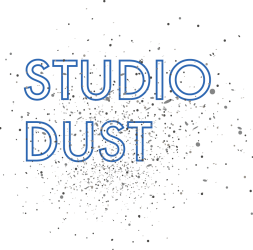<<<PREVIOUS PAGE
1.4 RESEARCH METHOD
MY POSITION
I’m a member of ‘Stadslab Luchtkwaliteit’. In the context of this research, it provided me with a lot of experienced based information. This information is subjective. In order to be able to create valuable data out of my experience, I reflected with other members of the ‘Stadslab Luchtkwaliteit’ and researcher Marijke Bovens, who conducted a study on ‘Stadslab Luchtkwaliteit’.
CASE STUDIES + INTERVIEWS
In order to uncover these new design practices and discover under what circumstances these practices have the most relevance, this qualitative research is based on literature research, case studies on City Labs, interviews with designers that assume a Pro-Am role within those labs, and a reflection on the collected data, because these methods provide detailed information.
Case Studies:
1)‘Stadslab Luchtkwaliteit’, Rotterdam
2)‘Zero Footprint Campus’ Utrecht[1]
Both studies fit the research, but vary enough in circumstantial settings to create valid data. This is done through a background research on these Labs and an interview with the initiators of the Lab. Marieke de Keijzer from Stadslab Luchtkwaliteit, she is a landscape architect and Cynthia Hataway from the Zero Footprint Campus, she is a designer. I’ve also interviewed the designers that assume a Pro-Am role in the Labs. Kirsten Kentler, she is an interaction designer and a Pro-Am on the topic air quality and a member of Stadslab Luchtkwaliteit. Guido Marsille, he is an interior architect and a Pro-Am ‘chemist’ for his project ‘van Blankensteyn’ where he started a soap factory with ecology in mind within the setting of the Zero Footprint Campus.
Reflection: In order to gain depth from experts, the research reflects on the collected data with experts in the field, because this provides a context for the urgency of the research in the current design field and within design education. Within the City Labs, I reflection on the data with an interview with Marijke Bovens, who is a expert on City Labs within the Netherlands and has a distant view on the practice of designers in these Labs. I also include my own reflections when I attended expert meetings on City Labs by Creative Industries Fund NL who are a national body that supports such City Labs.
In order to get insights in the topic amateurs I interviewed Cristina Ampatzidou, she is an urbanist and initiator of AmateurCities. She is an expert on amateurs, because she conducted a wide research and publishes about amateurs in the context of the city for the platform AmateurCities. And I also reflected with amateurs regarding this research. I’ve spoken to an amateur weaving group.
Lastly I reflected on the data with both design students that will have their future practice in these emerging new design practices and with design educators. I gave a seminar regarding the content of this research ’CROSSING BOUNDARIES’[2] for students from the Master Eco-Social design programme at the Free University of Bolzano Italy together with Professor Fuad-Luke who is not only a design professor but also an expert within this topic. The seminar addressed the changing realities and roles of design within collaborative design practices. And this research was situated within the HOT[3] research program of the Hogeschool Rotterdam / Creating010 under the topic: “education in labs, communities of practice and stations.” Under the guidance of Anne Nigten (Lector of Design for Network Ecologies at Creating010)This provided a possibility to reflect on the data and content with experts regarding this topic in the context of design education and educators.
[1] Zero Footprint Campus is the first project by artist Melle Smets and designer Cynthia Hathaway, established within the context of Department of Search, in which artists and scientists work together on urgent issues at Utrecht Science Park during the academic year.
(http://www.zerofootprintcampus.nl/en/about-zero-footprint-campus/, accessed aug.2016)
[2] ‘CROSSING BOUNDARIES’: Seminar about collaborative design practices. Piscaer presents research for Master Education in Arts and StadsLab Luchtkwaliteit. Fuad-Luke shows ongoing work with the Make Yourself… local clothing project in Bolzano.
[3] HOT is a Learning Community of lecturers from the Rotterdam University of Applied Science from the Institute Communication, Media and Information Technology, Willem de Kooning Academy, Department of Education, Research Centre Healthcare and Creating 010. (https://www.hogeschoolrotterdam.nl/onderzoek/projecten-en-publicaties/creating-010/smart-and-inclusive-society/hogeschooldocenten-ontwikkel-team/, accessed aug.2016)
<<<PREVIOUS PAGE
